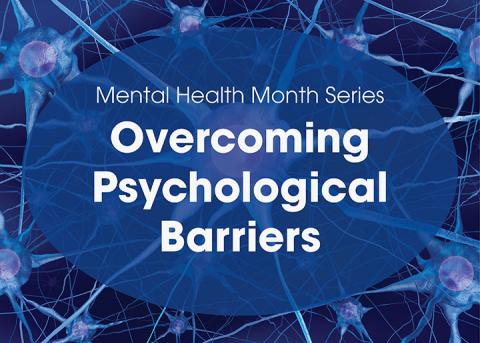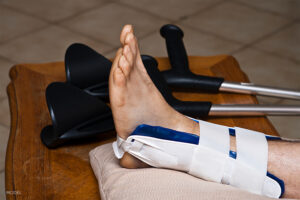Physical Address
304 North Cardinal St.
Dorchester Center, MA 02124

Athlete’s mental outlook greatly impacts how they perceive and recover from injuries. Understanding this aspect is crucial for their overall performance and well-being.
In sports, injuries are not only physical setbacks but also psychological challenges that can affect an athlete’s confidence and motivation. The mental resilience of an athlete plays a vital role in the recovery process and their ability to bounce back stronger.
By addressing the mental aspect of injuries, athletes can develop coping strategies, maintain a positive mindset, and stay focused on their goals. This holistic approach not only promotes faster physical healing but also contributes to long-term mental well-being and performance excellence.
Athletes often experience significant psychological impacts when dealing with injuries, affecting their mental aspect and overall performance. The mental toll can range from frustration and anxiety to feelings of helplessness and fear, highlighting the importance of addressing both the physical and emotional aspects of recovery.
The Psychological Impact of Injuries on Athletes
Injuries can have a profound effect on an athlete’s mental well-being. The fear and anxiety associated with being sidelined can be overwhelming.
Fear and Anxiety
Injuries often trigger intense fear and anxiety in athletes.
Athletes may worry about their ability to fully recover and get back to peak performance.
The fear of re-injury can be a constant source of stress during the rehabilitation process.
This can lead to hesitation and a lack of confidence when returning to the sport.
Athletes may feel helpless as they grapple with uncertainties about their future in the sport.
Depression and Frustration
Depression and frustration are common emotional responses to injuries in athletes.
Athletes may experience a sense of loss and sadness as they are forced to step back from their passion.
The prolonged recovery period can lead to feelings of frustration and impatience.
Athletes may struggle with self-esteem issues and a sense of identity crisis during this period.
It is crucial for athletes to address these psychological challenges along with the physical ones during the recovery process.

Credit: twitter.com
Psychological barriers play a crucial role in how athletes perceive and respond to injuries. Understanding these barriers is key to enhancing mental resilience during the recovery process. By addressing the mental aspect of injuries, athletes can foster a positive mindset to aid in their physical rehabilitation.
Negative self-talk can hinder recovery and performance.
It’s crucial to challenge and reframe these thoughts.
Encouragement and positive affirmations can combat negative self-talk.
Lack of confidence can impede an athlete’s ability to bounce back.
Building confidence through small successes is key.
A supportive environment boosts an athlete’s self-belief.
Supportive team dynamics play a vital role in combating these barriers.
Discover effective techniques to help athletes overcome psychological barriers related to injuries. Implementing mental strategies can enhance resilience and foster a positive mindset for optimal recovery and performance. Mental readiness plays a crucial role in navigating the emotional challenges associated with sports injuries.
One effective strategy for athletes to overcome psychological barriers is through positive visualization techniques. Athletes can use the power of their minds to visualize themselves successfully recovering from their injuries and returning to their sport stronger than before. By vividly imagining each step of their rehabilitation process, including the healing of their injury, regaining strength and skill, and ultimately excelling in their sport again, athletes can strengthen their belief in their ability to overcome any obstacle. These visualizations should be done regularly, in a quiet and relaxed environment, allowing the mind to create a powerful mental image of success. By consistently practicing positive visualization techniques, athletes can cultivate a positive mindset and increase their motivation and confidence in their ability to overcome their injury.
Another essential strategy for athletes facing psychological barriers due to injury is to build a strong support system. Recovering from an injury can be mentally and emotionally challenging, and having a support network of family, friends, coaches, and teammates can make a significant difference. These individuals can provide not only emotional support but also practical assistance in various aspects of the recovery process. They can offer encouragement, empathetic listening, and help athletes stay motivated and focused on their goals. Additionally, connecting with other athletes who have experienced similar injuries and successfully returned to their sport can provide valuable insights and inspiration. Building a support system creates a sense of belonging and reminds athletes that they are not alone in their journey towards recovery and overcoming psychological barriers.
Understanding the mental aspect of athletes towards injuries is crucial in developing a holistic approach to their recovery process. The role of mental training in injury recovery plays a significant part in an athlete’s ability to overcome the physical and emotional challenges associated with being injured. By incorporating various mental strategies and techniques, athletes can better manage their mindset, emotions, and overall well-being as they navigate through the rehabilitation process.
A key component of mental training in injury recovery is integrating mindfulness and meditation practices. Mindfulness involves being fully present in the moment, acknowledging one’s thoughts and feelings without judgment. It allows athletes to cultivate a sense of awareness and acceptance of their current circumstances, which can be particularly beneficial during the rehabilitation phase. Meditation complements mindfulness by providing a tool for athletes to quiet their minds, reduce stress, and enhance their ability to focus on their recovery goals.
Setting clear and actionable goals is essential for athletes undergoing injury recovery. By establishing specific, measurable, achievable, relevant, and time-bound (SMART) goals, athletes can maintain a sense of purpose and direction during their rehabilitation journey. Effective goal setting empowers athletes to maintain motivation, track their progress, and overcome setbacks, ultimately contributing to a positive mindset and a successful recovery.
Athletes who overcome psychological barriers often demonstrate extraordinary resilience, determination, and a winning mindset. These case studies of elite athletes, Michael Jordan and Bethany Hamilton, serve as powerful examples of mental fortitude in the face of adversity.
Michael Jordan, the legendary basketball player, faced numerous setbacks throughout his career, including being cut from his high school basketball team. However, he used these failures as motivation to work harder and ultimately became one of the greatest athletes of all time. His mental toughness and ability to bounce back from adversity are a testament to the power of a strong mindset in overcoming challenges and achieving success.
Bethany Hamilton, a professional surfer, experienced a life-altering shark attack that resulted in the loss of her arm. Despite this devastating injury, she refused to let it define her or diminish her love for surfing. Through unwavering determination and a positive mindset, she defied all odds and returned to competitive surfing, inspiring countless individuals with her resilience and bravery.

Credit: www.nata.org
Sports injuries can have a significant impact on mental well-being. Athletes may experience frustration, anxiety, and depression due to the disruption of their training and performance. Dealing with physical pain and the fear of re-injury can also contribute to mental stress.
Seeking support from professionals or teammates can help athletes cope with these challenges.
An injured athlete often faces frustration, anxiety, and uncertainty about their recovery and future. They may feel isolated and depressed, but with the right support and mindset, they can focus on rehabilitation and return to their sport.
Being an athlete can impact mental health by increasing stress levels and potentially leading to anxiety or depression. However, regular physical activity can also have a positive effect on mental well-being by reducing stress and improving mood. It’s important for athletes to prioritize mental health alongside physical training.
Psychological factors like stress, anxiety, low self-esteem, and negative emotions have been linked to an increased risk of athletic injuries.
To sum up, the mental aspect of athletes towards injuries is a critical element to consider. It is evident that injuries can have a profound impact on athletes, both physically and mentally. By acknowledging and addressing the psychological challenges athletes face, such as fear, frustration, and anxiety, we can better support their journey to recovery.
Providing athletes with the necessary tools and resources to cope with these challenges will not only aid in their rehabilitation process but also contribute to their overall well-being and future success in their respective sports.

